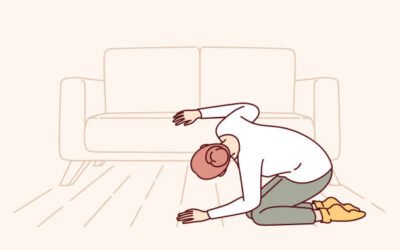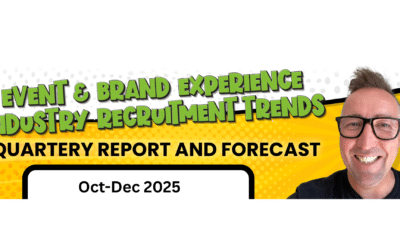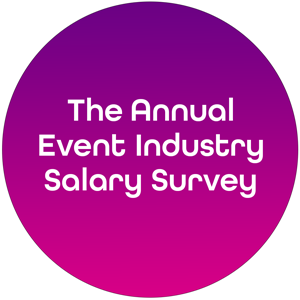There is no denying that this year is going to be tough, but there are green shoots appearing.
We will start to see events coming back later this year as the vaccine rollout has a positive impact on employer and consumer confidence. This means that we, as an industry will have to start to scale up again and that means employing new staff.
Employing the right people is not an easy job, and if you think you’ll be able to simply pick up the phone and call the people you made redundant last year, you need to take a reality check. Your ex-employees won’t be waiting around for you to call, they will most likely have found other jobs or even totally new careers, or they simply may not feel enamoured about working for your company again.
When it comes to the art of recruiting, my advice (obviously…) would always to be to use a professional recruiter, but I know that many of you either won’t be able to, or won’t want to do that. If you are going to do it yourself please put some thought into it, treat it like you would any other strategy that would improve your business and do it properly. And above all, treat people how you’d like to be treated.
Recruitment is not a ‘side of desk’ job, i.e. an extra task to do on the side of your core job.
Give recruitment the focus it deserves, treat it as you would treat an event; make a plan, get a team together and give them specific roles and responsibilities. Involve everyone relevant and take their ideas and input. Make sure the person or people the new recruit will work with are involved in the process.
Put together a brief with timescales and milestones to hit. Decide on a budget because you’ll need to know costs even if you are doing it internally; time is money and you should dedicate a good number of hours to the process.
Bespoke job advert
Write a bespoke job advert remembering that a job advert isn’t the same as a job description. A job description is simply a list of tasks and responsibilities the job role entails; it may include a list of the required skills and experience and it will be used internally at appraisals.
A job advert is much, much more than that, it should speak directly to the person who you’d like to attract and describe them and their personality, how they like to work and the relationships they will have within the business and with clients.
Consider, what is it that you are offering them? Why should they want to work for you?
Be truthful, give them a ‘warts and all’ account of what it’s like to work for your company, even if that includes admitting that the aircon always breaks down in the summer or the hours can sometimes be long and unsociable.
If you are truthful, you will ensure that employees join with their eyes wide open, and are under no pretences about what it’s actually like to work at your company. You will employ staff who add value and grow with the business, and not leave after six months because the rosy picture painted at the interview was actually a piece of fiction.
Your advert should not promote your brand, and it definitely should not waffle on about your company.
I liken this sort of advert to going on a first date and your date blathering on about how great they are, instead of sharing their thoughts and anecdotes that allow you to make up your own mind. In the same vein, an applicant doesn’t want to be told that your company is great, but instead allow them to discover it for themselves by telling them what you can offer the right person and what’s in it for them. It’s also ethical and sensible to include the salary or at least the salary bracket; this will help your applicants to decide if the job is right for them or not, but more importantly, save you and them valuable time, as let’s be honest of course you have a budget or salary bracket in mind and that comes with a certain amount of knowledge and experience required.
Candidate profile
Think about the person you’d like to attract and write a profile describing their personality, their culture and work ethic.
Explain and be upfront about what the challenges and priorities are, and what parts of the role are going to be tough.
You’ll get fewer applicants, but far better quality ones, and that’s what you want because applicant attraction is not recruitment.
An applicant is different to a candidate. An applicant is someone who applies for a role, but a candidate is someone who is a potential hire. Anyone can apply for a job and become an applicant, but only the right people will turn into candidates. I could apply to be a model but I certainly wouldn’t become a candidate!
The Candidate Experience
The candidate experience should be considered from day one; this could be the first time a person experiences your brand and you want to make a good impression.
Treat applicants how you would like to be treated and consider all of the touch points they will have with your business then work out how you can make each one as good as it can be. Manage the recruitment process and set expectations; tell applicants when you will get back to them and when interviews will be and then stick to your timescales.
Treating people badly, through wilful neglect or simply bad management, will damage your brand. Put yourself in their shoes because empathy is a dying skill in recruitment but it can make all the difference to the experience.
Careers page
Do you have a careers page on your website?
You should, because not having one is setting yourself up for a fail because it makes it look like you don’t care. The page should convey the company’s culture, values and branding; here’s where you can show people that you are an employer of choice.
At the moment, potential employees can’t come to your offices, so maybe you could enable them to have a look around by creating a short video tour. It doesn’t have to be polished; a simple mobile video will work well. Inject your personality and make it fun by showing off the break room, the water cooler and all the other important office details.
Interview recent hires and also people who have been with you a long time and share this on your careers page, or in an email to applicants. Ask them why did they join, and more importantly, why did they stay? What would they say to others about what it’s like to work at your company?
The little things like this are important and matter hugely to a potential employee and it enables them to better prepare for the interview.
The Interview process
The first ‘interview’ is actually the orientation call – the call you make to speak to the applicant and to book in an interview with them. In the call, help them to prepare by being clear about what you expect to happen at the face to face interview.
This call is for both of you to work out if they’re a candidate or not against your set needs and expectations, and whether their career and personal aspirations are a match to where the business is going.
The next step will be the informal interview which is currently via video. Always have a minimum of two people in attendance, one to talk whilst the other one listens and takes notes – and vice versa.
Book the applicant in for an hour and spend the first 15 minutes explaining what you are looking for, tell them why they made it to this stage and also outline any concerns you may have about their experience and / or qualifications. Be very clear about what you are looking for and ask exploratory open questions.
Interviewers often ask vague questions looking for specific answers and yet expect the applicants to be able to decipher what they really want to hear.
Being clear about what you are looking for, and if after 10-15 minutes you feel that it’s not right, don’t be afraid to halt the interview and explain why it’s not going as expected.
Be truthful and don’t waste anybody’s time. Be prepared to answer questions too, even if they’re ones you don’t want to as the candidate should be interviewing you and the business just us much as you them. This is called two-way interviewing and it’s vital for retention.
The final interview may be a presentation or another more formal and detailed chat or to look at specific areas you need reassurance with.
Mental Health
A job interview is a gruelling experience, and your applicant will have prepared and invested professionally, emotionally and mentally in the process.
A bad interview can have a serious impact on the mental wellbeing of the applicant and so you should take some responsibility and give them a chance to be prepared; send over some interview briefing notes in advance, tell them who will be interviewing them, or even pre-warn them about the two or three things about them that you aren’t sure about.
Don’t miss out on quality hires because you don’t know how to interview. No one is a professional interviewer or interviewee, and it’s not their fault if you didn’t help them to prepare.
Video interviewing is tough. It is very different to doing it in-person because it tends to be shorter and less relationship driven; it’s hard to build a rapport and spot nuances over Zoom.
To conclude:
It is widely accepted that the cost of a bad hire is around 30% of a person’s salary, plus the added cost of the people needed to sort the fall out, the damage to client relationships and continuity, and ultimately the damage to your brand.
In 2021, recruiting will be easy, but retaining will be hard. If you follow these steps you can help yourselves to recruit and retain the right people for your business.






